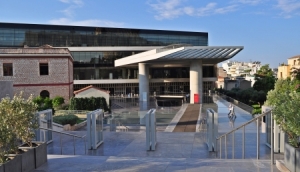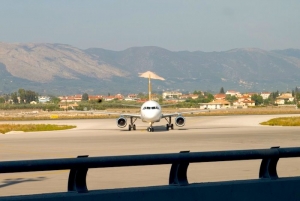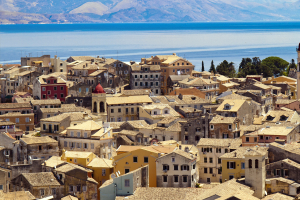Crowds surge through the pedestrian shopping zone of Athens’s Ermou Street, past designer boutiques and a tiny Byzantine church that stands at a kink in the road like an island of sanctity. Kapnikarea church is at least 1,000 years old, though its domed roof rests on four ancient columns from Roman times, each of them stripped from a different ruin.
Those mismatched columns, so pragmatically reused, offer an object lesson about the problems and promise of Athens today. Six years of economic crisis, and several decades of thoughtless urban development, have focused many minds here on the task of building a better future from the usable past.
Apart from its classical monuments, Athens is not a picture-postcard capital. It is gritty, restless and spontaneous, as you can see from rampant graffiti that sometimes blows up into epic street art.
But the city seems to be rebounding from the depths of the crisis, which many say were touched three years ago. More and more Athenians are involved in a kind of civic infill activity, reimagining the town, improvising social services and engaging in what Greek photographer Eirini Vourloumis calls “a forced renegotiation of Greek identity.”
Athens is still living the hangover from the boom years of the 1960s, when Athenians were proud of the city they thought they were creating, but also strangely oblivious to the consequences of that process. Unco-ordinated development, fuelled by aid from the U.S. government, erased much of the city’s neoclassical heritage, and damaged the city’s ecology and infrastructure.
Now, ambitious plans are afoot to remodel the downtown in more sustainable ways, and to add cultural capital to civic life. Innovative restorations, led by artists and arts organizations, are reclaiming rundown industrial districts. There is a feeling here that creativity is the last and best resource when other resources fail.
Nikos Vatopoulos, cultural editor of the Athens daily paper Kathimerini, says that Greece “has entered its Weimar period” – a reference both to its political fragility and its creative dynamism.
Rethink Athens, a project led by the Onassis Foundation, will insert a “green spine” between two central plazas, starting later this year. The six lanes of Panepistimiou Street will be pedestrianized and planted with 800 trees, to become a grand promenade – with bike lanes and a tram line – between the neoclassical environs of Syntagma Square and the slowly reviving area around Omonia Square. Near the centre of that promenade, the Greek National Theatre is completely restoring the Rex Theatre, an art-deco building designed in 1935 that will become a three-stage theatre hub. Dozens of empty buildings along Panepistimiou will reawaken as cultural spaces through a citywide project called theatre of 1,000 rooms.
The Greek National Opera, which has expanded all over town with unstaged “suitcase operas” and pop-up performances, will have a new theatre as of next year, designed by Italian architect Renzo Piano, at the Stavros Niarchos Foundation’s new complex in the city’s southwest. The National Museum of Contemporary Art (EMST) has already taken up quarters in part of a restored brewery building originally designed by Takis Zenetos, a leading Greek proponent of modern architecture’s International Style.
To read the complete article please visit:
TheGlobeAndMailBy: Robert Everett-Green













